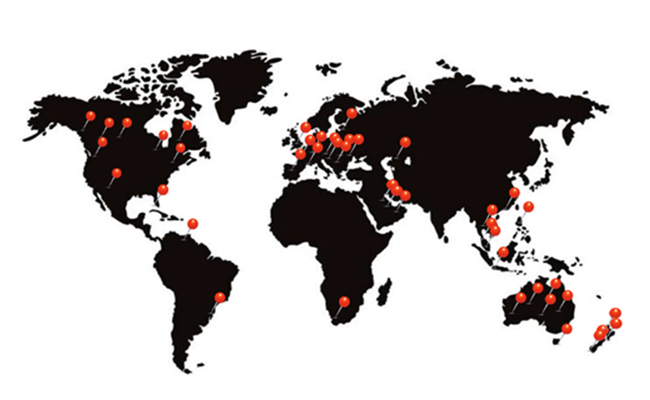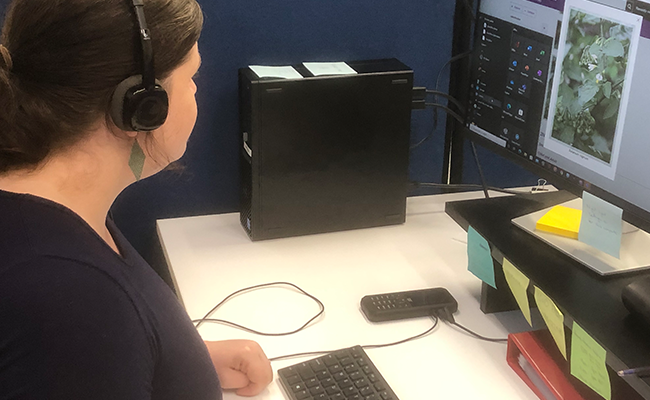Monday 7 November 2022 4:16pm

Location of toxinz™ users.
The National Poisons Centre (NPC) has recently completed a multi-year project to replace its toxinz™ poisons information database. toxinz™ contains current, concise and reliable information on the clinical management of poisoning for hundreds of thousands of listed chemicals, pharmaceuticals, household products, plants and hazardous creatures. This resource is continually reviewed and always expanding to accommodate more information.
The information, while comprehensive, is succinct, easily navigated and contains clear recommendations on patient management. Advice, supported with images and nomograms (graphical calculating devices), is fully referenced, with updates made in real-time.
toxinz™ is curated and edited by NPC staff, based at the University of Otago in Dunedin, and supported by a nine-member international editorial board.
The NPC was established at the University in 1964 as an emergency information source for both health professionals and the public in cases of poisoning exposure. Over the past 58 years, it has built up an extensive database of information relating to product formulations, the signs and symptoms of harmful exposures and related medical management protocols.
NPC Director and medical toxicologist Dr Adam Pomerleau says the new software platform was sorely needed to secure the long-term future of the toxinz™ database. He says he looks forward to increased productivity and new capabilities the system delivers.
Due to the complexity of the system, and some timeline complications related to the COVID-19 pandemic, the project itself involved several years of planning and ten months of build time – involving a collaborative team of NPC staff, University IT Services staff and an external software development company.

A Poisons Officer working in the data base.
NPC Service Delivery Manager Lucy Shieffelbien says the upgrade is a huge improvement for the team.
“It’s exciting to have a new refreshed platform that is really responsive, easy to update and maintain and looks much more modern,” she says.
“There are hundreds of thousands of substances and products on toxinz™. There’s still a lot that we don’t have on there, so it’s an ever-evolving and growing database. As new products are launched, or come on to the market we have to do research and write them up, so there’s always work to maintain it.”
The service constantly monitors what is being searched for on toxinz™. The team also monitors the most common failed searches, and then finds out what information is available on this product to add to the database.
Paracetamol is the most searched item on the toxinz™ platform. “It is pretty universal and is the most common item in many households,” she says. In 2021, toxinz™ had more than 443,000 hits globally, and more than 49,000 from New Zealand. The latest upgrade includes enhancements to its security.
Ms Shieffelbien says it’s the Centre’s Poison Information Officers and Specialists who provide its 24-hour phone service, answering questions and giving advice to the public and healthcare professionals. When they are not answering calls they are regularly updating the database.
Having held the role for more than 22 years, she must ensure the NPC runs efficiently. It has 14 Dunedin-based staff, including nine Poison Information Officers working on a 24-hour roster, who are supported by two Poison Information Specialists. There are two clinical specialists being the Director and Deputy Director, there’s a Data Specialist and Research Fellow and herself.
Ms Shieffelbien says in 2008, the University investigated commercialising toxinz™ through Otago Innovation (Ltd). toxinz™ is now used in more than 30 countries – and that's not including developing countries with free access through the World Health Organsiation’s Hinari programme.
Anyone in NZ concerned that a possible poisoning has occurred should ring the NPC at any time seven days a week on 0800 764 766.
For more information:
